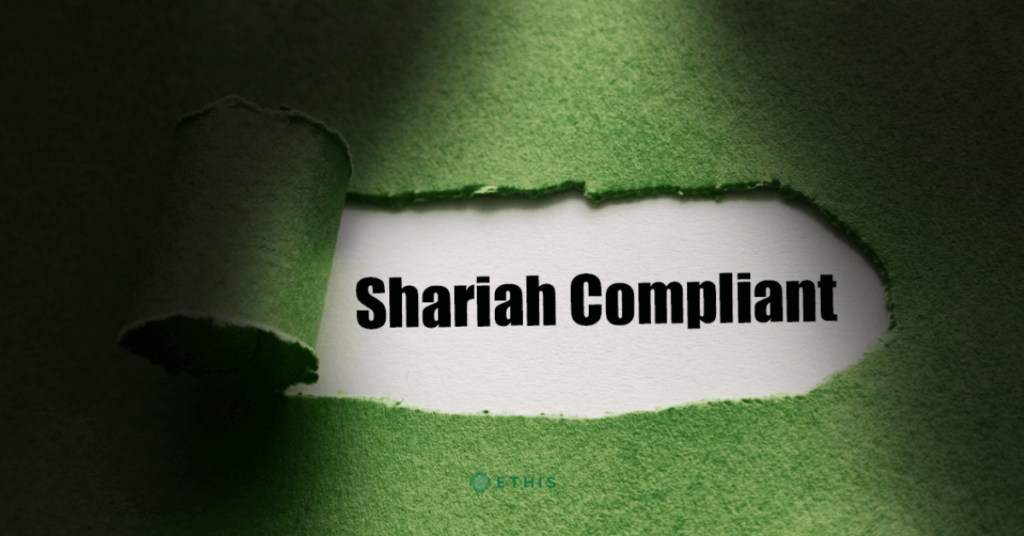
By: Ahmed Aban Zubair. Research Associate, Mile & Associate
By: Dr Aishath Muneeza, Associate Professor, INCEIF, Malaysia
The concept of crowdfunding entails the process of financing an idea, a project, a person or a cause through the collection of small amounts of money from a large number of providers. There are four types of crowdfunding namely lending or P2P crowdfunding, donation-based, reward-based and equity-based. Islamic crowdfunding provides an opportunity for investors, donors and entrepreneurs to support the socio-economic development of the micro and small enterprises sector in Islamic countries.
In the absence of a proper Shariah governance framework applicable for Islamic crowdfunding, there could be cases in which Shariah non-compliance circumstances could occur, and without the implementation of a proper internal Shariah governance framework, it may not be detected within the service provider. For any country that is planning to establish Islamic Banking and a financial structure, the key objectives which they have to follow are systematic stability, an adequate level of compliance with Shariah rules, and an international acceptance of the Islamic banking operations.
Malaysia has an Islamic as well as a conventional banking system, and they share the same governance structure and legal framework. With regards to Islamic crowdfunding, it is imperative to determine a proper Shariah governance framework.
Do we have any Shariah Governance Frameworks for Islamic Crowdfunding?


In the coming years, Islamic crowdfunding is likely to be an important source of alternative finance. As the interest of investors and other stakeholders in Islamic crowdfunding is growing, good governance in the process is becoming increasingly essential. Though different countries in the world have different legal and regulatory frameworks applicable to crowdfunding—of which the application could be extended to Islamic crowdfunding—right now there is no comprehensive Shariah governance framework formulated for Islamic crowdfunding.
However, this does not mean that there are no specific guidelines or additional guidelines applicable to Islamic crowdfunding. In the case of Malaysia for example, according to the Guidelines on Recognized Markets—which also deals with crowdfunding issued by Securities Commission Malaysia—it is explicitly stated that the recognised market operator (RMO) must appoint a Shariah adviser for Islamic capital market products that are offered on or through the recognised market.
So far, no Islamic finance standard-setting body has issued a specific shariah governance framework for Islamic crowdfunding. However, in December 2020, it was reported that the Accounting and Auditing Organization for Islamic Financial Institutions (AAOIFI) was working on a standard for Islamic crowdfunding to have a standard that sets out a comprehensive framework for Islamic crowdfunding governance with detailed coverage of areas relating to the cybersecurity and disclosure requirements.
Since this standard has not yet been finalised and published, it is anticipated that pertinent shariah governance issues related to Islamic crowdfunding will be covered in this standard that would be published soon.
What does Shariah Governance standards require?


- Accreditation of Shariah Board members: Shariah boards should only have accredited Shariah scholars so that no Shariah student or Islamic studies can jump in and pose as a member of the Shariah committee. In addition to some basic knowledge of banking and finance, a Shariah Board member should have an MA or PhD in Islamic Financial Law. He must also be accredited by an institution established for this purpose through certain examinations and if necessary intensive courses. Ethis does have a Shariah Board which is headed by an accredited Shariah Scholar.
2. Independence of Shariah Control: Shariah Board Members must be selected, appointed, and possibly rejected by independent third parties such as the Central Bank or an international institution such as the Islamic Banking Council or Financial Institutions to ensure independence and avoid conflicts of interest.
3. Adding legal and financial experts: Shariah boards should also include financial and legal experts without the right of vote to advise the Shariah scholars and inform them of any relevant financial or legal concerns as well as any possible consequences of a Shariah resolution. Ethis has a strong legal team that helps in drafting contracts according to shariah guidelines.



Why is a Shariah Governance Framework for Islamic Crowdfunding Important?


The moment the prefix ‘Islamic’ is attached to any financial activity, including crowdfunding, it is an explicit assurance to all involved that all of its operations and transactions would be in accordance with Shariah.
Without proper governance, Islamic crowdfunding runs the risk of causing reputational damage to the Islamic finance industry. As such, merely stating that one is shariah-compliant without proper internal and external Shariah governance mechanisms would be irresponsible on the part of the service provider even in the case where there is no force of law requiring them to follow a certain standard of care.
Compliance with Shariah is the backbone of Islamic banking and finance. It legitimizes Islamic banking and finance practise and therefore validates profits. It also boosts the confidence of all parties in the Bank’s compliance with all practises and activities. However, only through a proper Shariah governance framework will the Shariah be complied with confidently. This is because Shariah governance is only intended to guarantee compliance with the rules of Islamic Shariah by the Islamic Banking and Finance Industry.
Therefore, the question arises whether it should be a requirement for an Islamic crowdfunding service provider, just like how an Islamic financial institution establishes internal Shariah control functions such as Shariah risk management, Shariah review and Shariah audit which will have a significant impact on their operational expenses.
Not only this but throughout the operation of the service, would Islamic crowdfunding service providers be required to have a Shariah supervisory board just like Islamic financial institutions. The same goes for the appointment of Shariah compliance officers to ensure that daily operations of Shariah compliance are adhered to among other regulatory requirements. When we asked these questions to practitioners, we found that there is a difference of opinion among them.
Some are of the view that the role of crowdfunding service providers is completely different from how an Islamic financial institution operates. This is the main reason—that, unlike Islamic financial institutions, Islamic crowdfunding platforms do not provide products and services or even control projects listed on their platform, and thus the responsibility is not shouldered by them. However, legally, depending on the legal and regulatory or prudential requirements imposed by the regulatory authorities, they are statutorily obliged to meet certain standards such as how the collection of funds are handled, disclosure and accounting requirements.
As such, for Islamic crowdfunding platforms, having a Shariah supervisory board is not a requirement, but what is required is a Shariah Advisor who could be an individual or a firm. They do not support the idea of having formal Shariah supervisory boards. They also believe that if all of the Shariah internal control functions are forced to be implemented by the crowdfunding service provider, this will be a business continuity or sustainability challenge for them, which could lead to an uneven level playing field between Islamic and conventional crowdfunding services providers.
However, to ensure the adherence of Shariah compliance, they believe that with a prudential Shariah audit, a Shariah audit could be conducted periodically to ensure that there is no compromise in Shariah compliance. In short, since the crowdfunding service provider is a matchmaker that matches the financing needs of investors and projects, there is no point in requiring the platform service provider to adhere to Shariah governance standards that are followed by a financial institution.
On the other hand, others consider the strict adherence of Shariah standards by crowdfunding service providers necessary to ensure that there is no compromise on adherence to the Shariah requirements. Although this can negatively impact crowdfunding service providers’ operational costs and lead to an unequal match between conventional and Islamic crowdfunding service providers.
For them, the idea is to ensure that proper internal and external Shariah governance and controls are put in place so that there will be no room for Shariah non-compliance to occur. So even if the crowdfunding service provider is merely a matchmaker, they need to ensure that shariah compliance is achieved in all the projects which are listed on the platform. For some practitioners, this view is considered too theoretical.
Conclusion
To conclude, crowdfunding is an innovative and potential approach to fulfil the financing requirements for startups and those unable to access finance using classical means. Shariah compliance ought to be adhered to in all stages of it. Islamic crowdfunding is an emerging area that is gaining attention the world over.
However, for its sustainable development, it is imperative to develop a suitable Shariah governance framework. Ethis is an example of an Islamic crowdfunding platform that has been following the legal structure according to the Shariah rules. The contracts developed by Ethis are all Shariah-compliant. The documentation as well is prepared by lawyers who have significant experience in Shariah laws.
Read more about Equity Crowdfunding





Top Posts
Islamic P2P Crowdfunding Explained
Halal Money Matters: How Muslims Can Balance Deen and Dunya with Smart Islamic Finance
Halal Investments for Singapore Muslims? It’s time for a shake-up in the Islamic Investments scene.
Smart investment for making Halal money
3 Reasons Why Property Crowdfunding is the Smart Investment for You